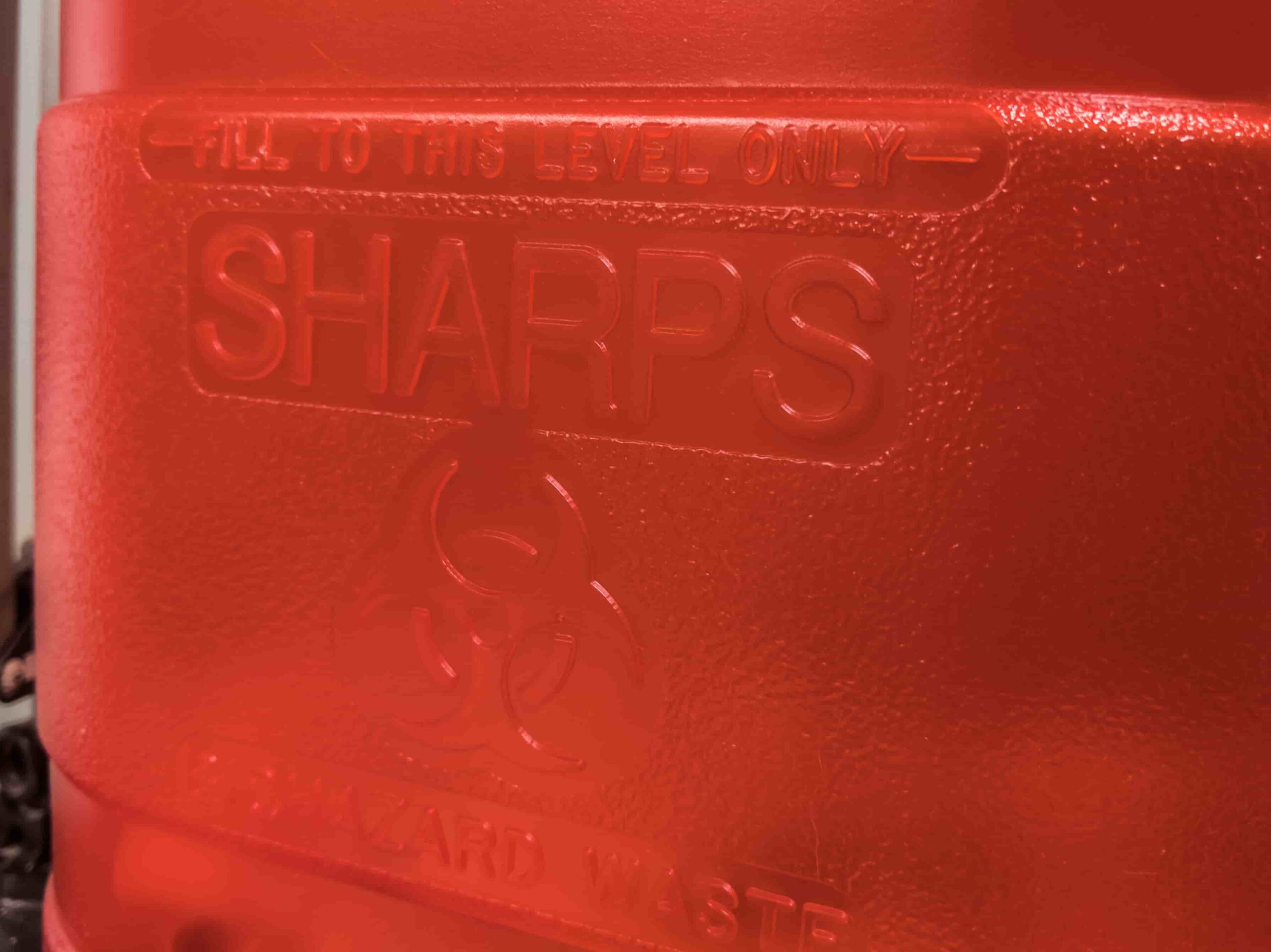
Safe disposal of sharps in hospitals prevents the risk for accidental and painful jabs or lacerations from used needles or blades that could lead to infection, tetanus and transmission of diseases. Safely disposing of sharps is not only responsible in terms of protecting human health but, as used sharps are considered biomedical waste, their proper disposal is mandated by law. Steps from the initial usage of a sharp to its ultimate disposal are regulated. Hospitals benefit by partnering with licensed waste management companies for their expertise and services in effectively managing the safe transfer and treatment of all their biomedical waste.
What is Classified as Biomedical Waste?
Biomedical waste is that waste generated in healthcare or research facilities during the diagnosis, treatment, study, and/or immunization of people or animals. Because it can pose a serious threat to public health, safety, and the environment, proper management and disposal of biomedical waste is subject to regulations. In Maine, medical waste is classified as biomedical waste and disposing of untreated biomedical waste is prohibited by law. The handling, management, disposal and treatment of biomedical waste is subject to state law regulated by the State’s Board of Environmental Protection under the Department of Environmental Protection.
Hospitals must register as biomedical waste generators and must follow certain criteria for safely handling, packaging, labeling, and storing biomedical waste, but also make arrangements for its safe removal, transportation and treatment. All biomedical waste transporters and owners or operators of transfer facilities and treatment facilities must be licensed by the state.
What Are Sharps Exactly?
As medical instruments or tools that can penetrate, puncture or cut human skin, sharps fall under the category of biomedical waste due to their contamination by bodily fluids and human blood after use. Sharps are used routinely in healthcare facilities to administer a vaccine, draw blood, or insert an IV. Hypodermic needles and syringes may first come to mind as more common examples of what medical sharps are, but the list also includes scalpel blades, razor blades, lancets, IV catheters, autoinjectors, cannulas, Pasteur pipettes, medical wiring, capillary tubes, and glass from test tubes, slides and slide covers—all fall under the category of medical sharps. In other words, any medical device used that can easily penetrate the skin can also puncture waste bags and cardboard boxes and leave people susceptible to a hazard that can cause injury and lead to infection or transmit disease.
As hospitals are one of the leading generators of sharps, for the safety of everyone, but especially for those who handle or are in the presence of biomedical waste—healthcare workers and janitorial staff—as well as patients—proper sharp disposal is essential. Sharp waste disposal in hospitals is organized around a set of rules and procedures to ensure they are managed safely.
How Sharps Are Properly Disposed Of
Proper disposal of sharps begins with a proper receptacle. After use, sharps should be placed in special, designated containers clearly labeled as biohazardous to ensure they are properly handled. FDA (Federal Drug Administration) approved containers are recommended. Made of either hard plastic or heavy corrugated cardboard, the receptacles are designed to prevent leaks, punctures, and overfilling that sharp objects like needles and scalpels can cause. The containers should be positioned as close as possible to the point of use and located at a height for easy access by staff. Once a sharps container is full, hospitals should contact their medical waste management provider for the removal of the container, or its contents if the container is reusable, and all biomedical waste to be transported and disposed of properly at a treatment facility.
Maine Labpack is a leading medical waste management provider serving hospitals and healthcare facilities statewide. Our experts are certified in the disposal regulations and requirements for biomedical waste. We work with hospitals to safely and legally remove and dispose of sharps used at their facilities. Maine Labpack offers hospitals a comprehensive, no-contract biomedical waste disposal service. Our experts arrive at your hospital, remove the pre-packaged sharps waste containers, and supply you with new ones for future pickups. Partnering with Maine Labpack ensures that hospitals are in compliance with the safe removal and disposal of biomedical waste like sharps. To learn more about all of our biomedical waste services or discuss how we can help you safely dispose of your sharps, please contact us today.
